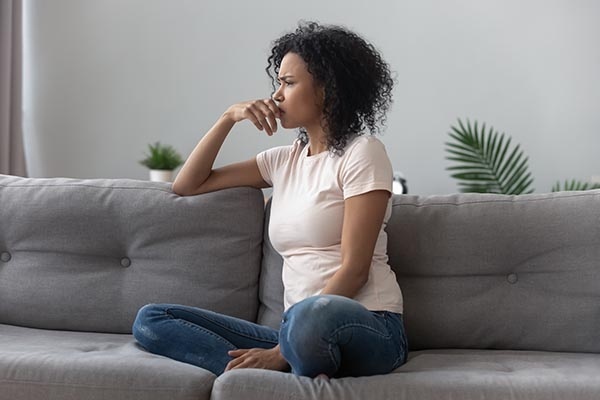Anxiety: What Is It and What Causes It?

When you experience certain types of emotions, you can clearly recognize and identify what’s going on.
But some emotions aren’t as easy to identify or deal with at the moment. Some emotions, like anxiety, can have a different impact on a person-by-person basis.
While you may be slightly familiar with anxiety, have a general idea of what it is, and may even be aware of some of the causes, it’s not something you completely understand. There are a lot of unknowns that you may want to learn more about.
Let’s learn more about anxiety, what it is, and what causes it.
What Is Anxiety?
Anxiety is the feeling that someone experiences when they’re going through stress. Anxiety is what happens when the body responds to a perceived threat or stress. While anxiety may be a normal and common emotion and feeling, an anxiety disorder can look a little different. An anxiety disorder is something that can impact someone’s daily life and routine. If the feelings of anxiety don’t pass or get worse over time, it’s a good sign that there’s a larger issue at play.
The Cause
There isn’t one cause of anxiety. In fact, the exact cause of anxiety is exactly known or understood. There are several believed causes of anxiety. These are some of the most commonly believed causes and risk factors of anxiety:
Medical Causes
Inherited traits or medical causes may be the root of anxiety for many people. These are some of the most common medical conditions that can be linked to anxiety:
- Chronic pain
- Diabetes
- Heart disease
- Respiratory disorders
- Substance misuse
- Thyroid problems
- Tumors
On top of these common medical problems that are linked to anxiety, individuals with a medical illness are more likely to worry about medical-related issues with their future, finances, and treatment.
 Personality
Personality
Some personality types are more likely to develop signs and symptoms of anxiety compared to other personality types. For example, introverts, overthinkers, and perfectionists may be more prone to anxiety.
Stress
Life is filled with ups and downs. You never know what each day will bring. There may be certain life events and stressors that can cause more anxiety than normal.
Substance Use
Anxiety can cause a vicious cycle of substance use and abuse. When anxiety is bad, someone may turn to unhealthy coping mechanisms like drugs or alcohol. While these may be short-term solutions, they can actually lead to worsening signs and symptoms. And they can be tough habits to break.
Trauma
Trauma can be a common cause of anxiety. Individuals who experience trauma or even witnessed a traumatic event can be at a higher risk of developing anxiety.
The Signs and Symptoms
While anxiety is something that many individuals can experience throughout their lifetime, a true anxiety disorder will show signs and symptoms that can cause disruptions in someone’s daily life and routine. These are some of the most common signs and symptoms of an anxiety disorder:
- Avoiding people, places, and things that may trigger anxious thoughts and feelings
- Difficulty concentrating
- Digestive issues
- Increased heart rate
- Nervousness
- Restlessness
- Sense of danger or doom
- Sweating
- Trouble sleeping
Treatment Options
Anxiety is a completely normal human emotion. That being said, if you start to notice that it’s negatively impacting your life and how you live it, it’s a good sign that you should seek additional support. While there are certain lifestyle changes you can make on your own end to help reduce some of the signs and symptoms, there isn’t a treatment replacement for working with a licensed and trained mental health professional. Reach out today to set up a consultation.
